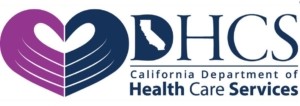Recover From Addiction at a Private Treatment Facility
Substance use disorder often co-occurs with mental health conditions and many people who need drug treatment do not get the help they need. Drug use impacts the body and brain in various ways, complicating addiction treatment. If you or a loved one are looking for a comprehensive approach that addresses both drug addiction treatment and mental health, reach out to Dana Point Residential Mental Health facility in California. We offer an individualized and thorough evaluation and assessment to create personalized treatment programs. There’s an entire team of experienced professionals available at our facility to help individuals with every step toward a life of recovery and sobriety.
How Can a Private Drug Treatment Program Help?
Our treatment program for co-occurring drug addiction and mental health conditions aims to change statistics. Treating substance use disorder can be tricky because treatment methods differ depending on the type of substance use. There are also other underlying factors that lead to addiction. This is another factor that should be considered for an individual’s treatment plan. At Dana Point Residential Mental Health, we take an approach that includes both traditional and non-traditional treatment when it comes to cutting-edge programs. We know that there is no single treatment that works for everyone. That’s why our treatment center takes into account medical history, familial support, co-occurring disorders, and science-based methods to come up with the best possible solution for long-term recovery.
Here are signs that indicate an individual may need to consider drug addiction treatment:
- Feeling the need to use a specific drug several times a day and taking larger amounts over a long period of time
- Having to maintain a consistent supply of the drug even if it causes psychological or physical harm
- Neglecting responsibilities such as work or school and cutting back on social activities due to drug misuse
- Partaking in risky behavior while under the influence
- Failing in attempts to stop using the drug and experiencing withdrawal symptoms without it
Frequently Asked Questions
The term “illicit” typically refers to the use of illegal drugs, including marijuana or the misuse of prescription drugs. There are two categories of illicit drugs. This first category involves drugs that are illegal to grow, produce, possess, sell, and use. Cocaine, heroin, and methamphetamines belong in the first category. The second category involves drugs that are typically prescription medications that are usually legally prescribed. But they are purchased, sold, or obtained illegally to feed an addiction. Some examples include OxyContin, Percocet, Vicodin, Xanax, Ativan, Valium, Soma, Ambien, and Suboxone.
Individuals who plan to start their recovery journey should also chemical dependency treatment, behavior therapy, self-help groups, and individual, group, or family therapy. Individuals will learn how to avoid relapse and maintain sobriety. They’ll also develop tools and methods to cope with cravings and emotions. Those who are in the treatment program are free to address other mental health conditions and discuss issues with their job or relationships. It’s all about discovering the root cause of addiction and developing habits to achieve long-term sobriety.
If you suspect that a family member has a substance use disorder, then you may want to look out for some key signs. They might frequently miss work or school and show changes in behavior. Those who suffer from drug use disorder frequently have issues with money and suddenly request it without explanation. If they have a neglected appearance and show signs of physical health issues like weight loss or gain, red eyes, and lack of motivation, then a drug addiction treatment program from a residential facility could help.
3d tour
Premium Addiction Treatment at a Residential Mental Health Facility
Reclaim your life through a personalized treatment program at a private facility in Orange County. Our team of compassionate healthcare specialists can assist you so that you can pursue long-term recovery and heal from addiction. Stay in spacious rooms with views for residential treatment and get carefully chosen meals. Access amenities like a fitness center, the beach, and many more.
Some additional text
Types of Drug Addiction
There are different types of drug addiction. Below, you’ll find five common types. If you or a family member are struggling with any of these addictions, consult our team of health care professionals to start your recovery journey.
Benzodiazepine Addiction
Benzodiazepines usually include anti-anxiety medications such as Xanax, Ativan, Klonopin, Valium, and Librium. Addiction treatment for this drug requires a supportive environment and medically-supported detoxification.
Cocaine Addiction
Cocaine is a drug that produces a potent high and causes intensified feelings, which lead to a rush of dopamine. Coming down from it can be emotionally draining and overcoming withdrawal symptoms requires drug detox with the help of treatment specialists.
Crack Addiction
Crack derives from powdered cocaine and takes both a psychological and physical toll on an individual. The drug produces different short-term and long-term effects by interfering with the brain’s reward system.
Heroin Addiction
Heroin is an opioid made from morphine and is one of the most addictive and deadly drugs. Managing and beating this type of addiction will likely be the most difficult thing one will ever have to do. But it is possible for anyone who wants to seek medical care and pursue sober living.
Meth Addiction
Methamphetamine, also referred to as “meth,” is one of the most notoriously addictive stimulants. This is because it affects the body and the brain to a drastic extent. Addiction to this drug takes hold almost instantaneously.






